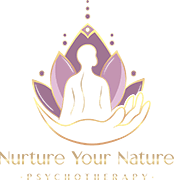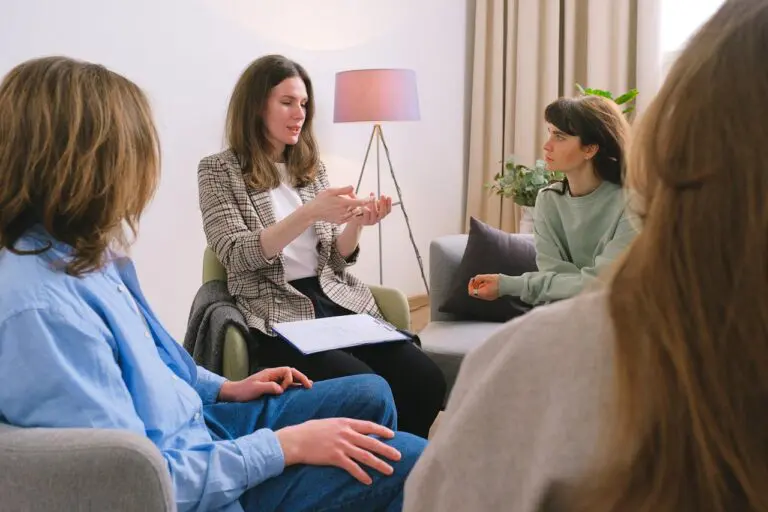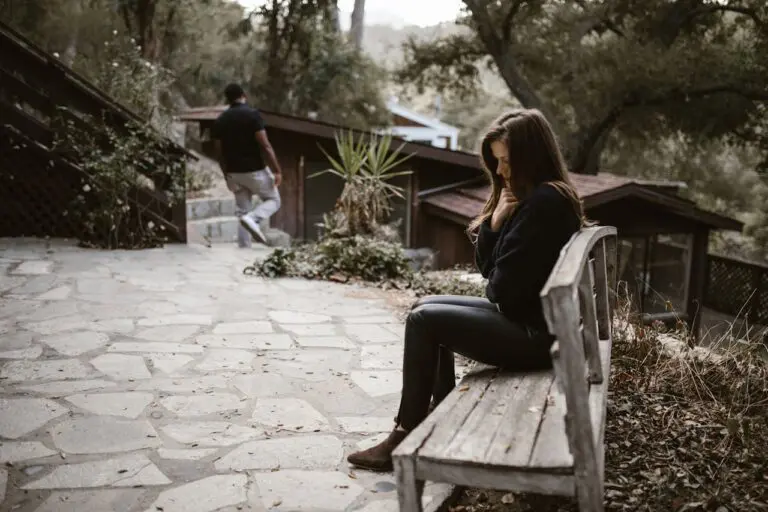Brooklyn’s neighborhoods are alive with culture, creativity, and the constant pulse of city life. Yet beneath that vibrant energy, many children and teenagers grapple with challenges that can feel overwhelming: social pressures, academic expectations, identity questions, family transitions, and the lingering effects of a global pandemic. While some stress is a normal part of growing up, persistent emotional or behavioral struggles may signal a deeper issue that needs professional support.
At Nurture Your Nature Psychotherapy, we specialize in Brooklyn Psychotherapy for young people, guiding families toward healing, resilience, and lasting growth. This comprehensive guide will help you recognize when it’s time to seek help, understand the benefits of Brooklyn Therapy, and explore how an experienced Brooklyn Therapist—in person or through Online Therapy Brooklyn—can make all the difference.
1. Understanding Child & Teen Mental Health
1.1 Developmental vs. Clinical Concerns
Every stage of childhood and adolescence brings expected changes. Mood swings, strong opinions, and testing boundaries often accompany growth spurts and hormonal shifts. Clinical concerns, however, go beyond temporary turbulence:
| Developmental Fluctuation | Potential Red Flag |
|---|---|
| Occasional irritability after school | Prolonged irritability spanning weeks |
| Brief social withdrawal after a conflict with friends | Complete withdrawal from peers and activities once loved |
| Nightmares after a scary movie | Persistent night terrors with daytime anxiety |
1.2 Why Early Intervention Matters
Research consistently shows that early therapy reduces symptom severity, improves academic outcomes, and lowers the risk of chronic mental health issues. Children who receive timely evidence-based treatment:
-
Re-engage with school and extracurricular activities
-
Develop healthier coping mechanisms
-
Experience improved family relationships
-
Show increased self-esteem and emotional regulation
2. Unique Pressures Facing Brooklyn Youth
Brooklyn’s diversity is both enriching and demanding:
-
Academic Competition – Competitive magnet programs and specialized high-school exams can magnify perfectionism and anxiety.
-
Cultural Transition – Many families are first- or second-generation immigrants balancing cultural identities.
-
Urban Stressors – Crowded housing, limited green space, and round-the-clock stimulation can elevate sensory overload and insomnia.
-
Social Media & Visibility – In trend-setting boroughs, online comparison culture can trigger self-esteem issues earlier than ever.
Recognizing how these local stressors intersect with your child’s personality is essential when assessing their mental health.
3. Warning Signs by Age Group
3.1 Early Childhood (Ages 3–7)
-
Excessive tantrums or aggression beyond age norms
-
Regression (bed-wetting, loss of speech progress)
-
Intense separation anxiety that impedes daily routines
-
Play dominated by themes of violence or fear
3.2 Middle Childhood (Ages 8–12)
-
Declining grades or sudden loss of interest in learning
-
Frequent headaches or stomachaches with no medical cause
-
Social isolation, bullying (victim or perpetrator)
-
Fixation on self-criticism or perfectionism
3.3 Adolescence (Ages 13–18)
-
Dramatic personality shifts or unexplained risk-taking
-
Self-harm (cutting, burning) or talk of hopelessness
-
Substance experimentation escalating to misuse
-
Withdrawal from family, previously close friends, or sports/arts
Tip: Keep a brief journal of concerning behaviors, noting frequency, severity, and context. Patterns help a clinician determine whether typical stress has crossed into clinical territory.
4. Emotional, Behavioral, Academic & Physical Indicators
4.1 Emotional Indicators
-
Persistent sadness or tearfulness
-
Heightened anxiety or constant worry
-
Uncontrollable anger or irritability
-
Flat affect or lack of enthusiasm
4.2 Behavioral Indicators
-
Aggression toward peers, siblings, or animals
-
Running away or repeated curfew violations
-
Compulsive behaviors (checking, counting, hoarding)
-
Excessive gaming or screen time as avoidance
4.3 Academic & Social Indicators
-
Sharp drop in attendance or grades
-
Frequent fights or detentions
-
Loss of interest in sports, clubs, or art
-
Peer rejection or cyberbullying involvement
4.4 Physical Indicators
-
Sleep disturbances (insomnia, oversleeping)
-
Sudden appetite changes or rapid weight shift
-
Complaints of chronic pain without medical findings
-
Neglect of personal hygiene (especially in teens)
5. When Typical Stress Becomes a Problem
Children are naturally resilient; however, when stress eclipses coping resources, it can impair growth. Warning thresholds include:
-
Duration: Symptoms persist longer than two weeks.
-
Intensity: Emotions or behaviors are extreme for your child’s temperament.
-
Functioning: Daily life—school, friendships, self-care—suffers.
-
Safety: Any mention or evidence of self-harm or harm to others.
If two or more thresholds arise, professional Brooklyn Therapy is advisable.
6. How Therapy Helps Children & Teens
6.1 Building Emotional Vocabulary
Young clients learn to name feelings accurately (e.g., “frustrated” vs. “mad”), reducing outbursts.
6.2 Developing Coping Strategies
Skills like deep breathing, journaling, and cognitive reframing empower youth to navigate stress.
6.3 Strengthening Parent-Child Bonds
Family sessions improve communication, align expectations, and break negative cycles.
6.4 Preventing Long-Term Issues
Early treatment of anxiety, depression, or trauma reduces the likelihood of substance misuse and chronic mental illness in adulthood.
7. Evidence-Based Therapy Modalities at Nurture Your Nature Psychotherapy
-
Play Therapy – For younger children; uses creative play to express emotions safely.
-
Cognitive Behavioral Therapy (CBT) – Targets distorted thoughts driving anxiety, depression, or OCD.
-
Dialectical Behavior Therapy (DBT) Skills – Helps teens regulate intense emotions and improve interpersonal effectiveness.
-
Trauma-Focused CBT – Combines CBT with trauma processing for children impacted by abuse, accidents, or community violence.
-
Family Systems Therapy – Addresses relational patterns, improving household dynamics.
-
Group Therapy – Offers peer validation and social-skill building.
-
Online Therapy Brooklyn – Secure telehealth sessions, ideal for busy families or those preferring in-home privacy.
8. The Rise of Online Therapy in Brooklyn
8.1 Why Families Choose Telehealth
-
Eliminates commute time across the borough’s vast subway lines
-
Allows consistent care during vacations, illness, or inclement weather
-
Reduces stigma—kids can meet from a familiar space
-
Offers flexible evening or weekend scheduling
8.2 Ensuring Effectiveness
-
Stable internet and a quiet, private area enhance focus.
-
For younger children, a parent’s presence near the session helps with tech hiccups and redirection.
-
Therapists may incorporate virtual whiteboards, digital games, or mindfulness apps to engage digital-native clients.
Online counseling at Nurture Your Nature Psychotherapy follows the same evidence-based protocols and HIPAA-compliant standards as in-office sessions.
Choosing the Right Brooklyn Therapist
| Factor | What to Look For |
|---|---|
| Credentials | LCSW, LMHC, PsyD, PhD specializing in children & adolescents |
| Experience | Proven track record with the specific issues your child faces |
| Cultural Competence | Familiarity with Brooklyn’s ethnic, religious, and LGBTQ+ communities |
| Parent Involvement | Regular parent consultations without breaching child confidentiality |
| Insurance & Rates | In-network coverage or sliding scale; transparent fees |
| Environment | Child-friendly office with creative materials, or engaging online platform |
What to Expect in the First Session
-
Intake & History: Parents provide medical, developmental, and academic background.
-
Rapport Building: The therapist uses games or conversation to reduce anxiety.
-
Goal Setting: Collaboratively outline measurable objectives (e.g., fewer school absences, improved sleep).
-
Homework: Simple activities, like mood tracking or mindful breathing, reinforce skills between sessions.
-
Next Steps: Frequency of sessions is determined; referrals to a psychiatrist occur if medication evaluation is indicated.
Supporting Your Child at Home
-
Validate Feelings: Replace “You’re fine” with “I can see you’re upset; let’s talk.”
-
Model Coping: Demonstrate your own stress-management strategies.
-
Set Consistent Routines: Predictability lowers anxiety.
-
Monitor Digital Use: Encourage tech breaks and offline hobbies.
-
Celebrate Small Wins: Reinforcement accelerates progress.
Frequently Asked Questions
Q: How long does therapy usually last?
A: Many children show marked improvement within 12–20 sessions, but duration varies by severity and engagement.
Q: Will my child be labeled or stigmatized?
A: Therapy emphasizes strengths and confidentiality. Clinicians at Nurture Your Nature Psychotherapy focus on empowerment, not labels.
Q: Can parents join every session?
A: Parent involvement is encouraged, though older teens may benefit from partial privacy. Your therapist will balance both needs.
Q: Is online therapy as effective as in-office sessions?
A: Multiple studies show comparable outcomes for anxiety, depression, and behavioral disorders when telehealth adheres to evidence-based practices and includes parental support.
Q: What if my child refuses therapy?
A: A first consult with parents alone can strategize engagement techniques, such as choice-mapping (“Do you want a morning or afternoon slot?”) and integrating the child’s interests into sessions.
When to Seek Immediate Help
Contact emergency services or your nearest hospital if your child:
-
Mentions suicidal thoughts, intentions, or a specific plan
-
Exhibits violent behavior risking harm to self or others
-
Experiences hallucinations or severe dissociation
Nurture Your Nature Psychotherapy provides crisis resources and collaborates with local hospitals to ensure safety.
Conclusion: Nurture Growth, Foster Resilience
Recognizing signs of emotional distress is an act of love. Whether you notice creeping sadness, disruptive anger, or silent withdrawal, taking action sooner rather than later can transform your child’s life trajectory. As a trusted provider of Brooklyn Psychotherapy, Nurture Your Nature Psychotherapy pairs compassionate expertise with evidence-based approaches—both in person and through Online Therapy Brooklyn—so families can thrive amid Brooklyn’s ever-evolving landscape.
If you’re wondering whether it’s time to seek help, schedule a free 15-minute consultation with a licensed Brooklyn Therapist today. Together, we’ll nurture your child’s nature, unlocking the confidence and calm they deserve. Schedule your Appointment Online Now or Call Us at (646) 470-4174 to get started Today!














